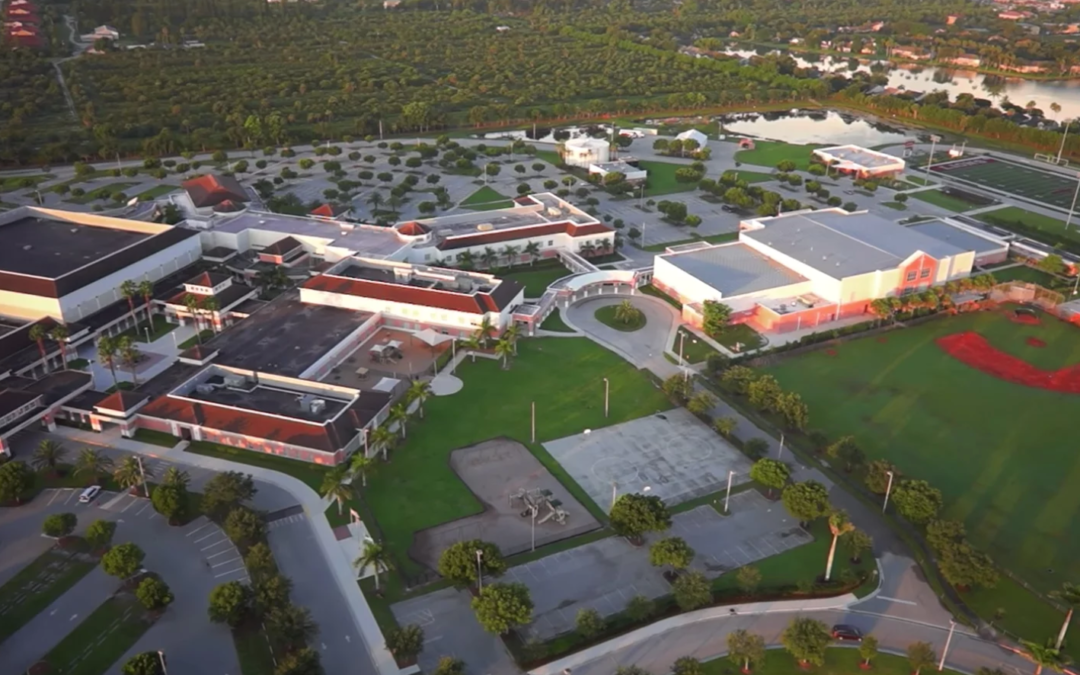
by Adelle M. Banks, RNS | Nov 7, 2019 | Headline News |
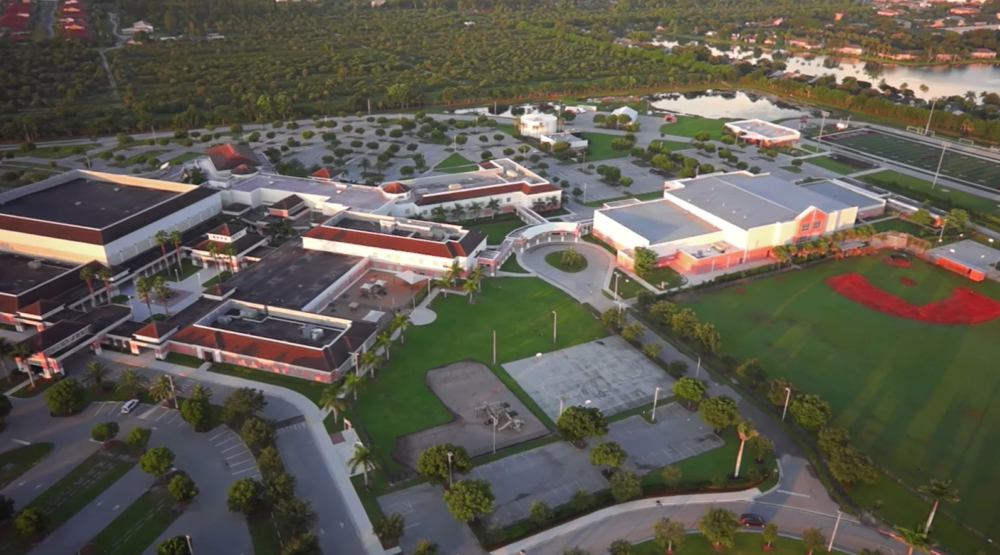
The campus of First Baptist Church Naples in 2014. Video screebgrab via Southwest Florida Television
A prominent Southern Baptist church in southwest Florida has acknowledged that “racial prejudice” was a factor in its congregation’s decision not to appoint a black senior pastor candidate.
Pastor Marcus Hayes, a leader of Biltmore Church in Asheville, North Carolina, received 81% of the vote by “a record 3,818” in attendance Saturday and Sunday (Oct. 26-27) where the “energy and excitement was like nothing we have ever seen before,” according to an email from the pastoral staff of First Baptist Church Naples.
But an 85% vote was needed for approval, based on the church’s constitution, the staff said.
“Last week, through social media, texting, phone calls and emails, racial prejudice was introduced into our voting process,” the staff wrote in the email that was posted on The Baptist Blogger Twitter account.
“Please know that specifically your Pastoral Staff is deeply, deeply grieved,” the staff wrote. “We are grieved for Marcus and Mandy that they had to endure such vileness. We are deeply grieved that the wonderful name of our Lord and the reputation of First Baptist Church Naples was affected by this campaign against Marcus Hayes.”
Hayes, who is married to Mandy Hayes, was being considered to succeed Hayes Wicker, who announced earlier this year his plans to leave his position after 27 years.
The staffers went on to call “anyone who took part in such divisive and sinful actions to immediately confess and repent.”
Hayes, through his assistant, declined an interview. First Baptist Church Naples did not immediately comment further on the situation.
The southwest Florida congregation once included Chuck Colson, the onetime “hatchet man” for Richard Nixon who founded Prison Fellowship after serving seven months in prison as a felon who had pleaded guilty to obstruction of justice.
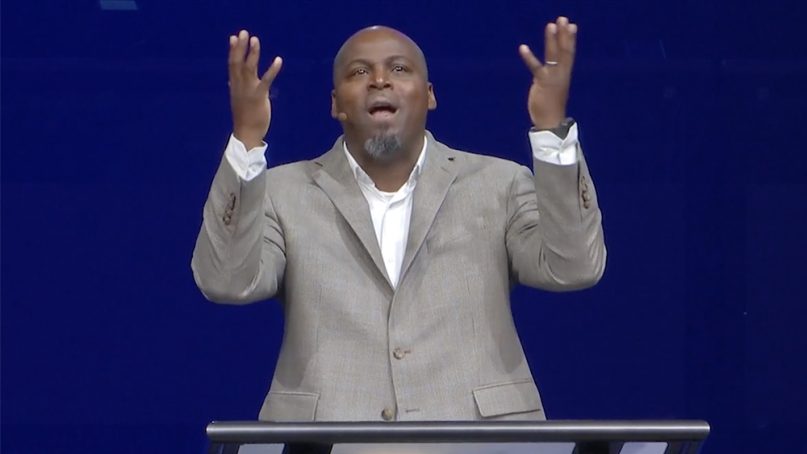
Pastor Marcus Hayes preaches at First Baptist Church Naples on Aug. 4, 2019. Video screengrab via FBCN
Hayes is a member of the Southern Baptist Convention’s Executive Committee and previously worked at Prestonwood Baptist Church in Plano, Texas, where former SBC President Jack Graham is senior pastor.
Graham told Religion News Service he has seen the email from the pastoral staff and is “very angry” about the outcome of the vote for Hayes, whom he has mentored.
Divisions in the church prior to Hayes’ consideration could have made it difficult to choose any new pastor — Graham said he has joked that even “Billy Graham in his prime” would have had trouble getting an 85% vote.
“However, it appears that there was racism that raised its very ungodly head in the midst of this and some false reports and just slander and flat-out lies regarding Marcus,” said Graham. “You can only conclude that sin, in effect, disrupted this whole process and the call of a good and godly man to be the pastor.”
The Southern Baptist Convention has grappled with race relations for decades before and since it passed a 1995 “racial reconciliation” resolution. That statement, adopted on the 150th anniversary of its founding in defense of slave-holding missionaries, said members of the denomination “lament and repudiate historic acts of evil such as slavery from which we continue to reap a bitter harvest.”
The Rev. Dwight McKissic, a Texas pastor who has worked to get Southern Baptists to adopt resolutions condemning white supremacy and repudiating the Confederate flag, called the outcome of the Hayes vote “Shameful!” and tweeted a suggestion that the Naples church should be disfellowshipped from the Southern Baptist Convention.
Graham said he considered the issue a matter for the local church — including possibly removing some of its members — but he doubts the SBC would disfellowship the Florida church under the current circumstances.
“They could do that but I’m sure the Southern Baptist Convention would think twice about that,” he said. “You do have … 3,000-plus members that sit on the right side of this issue.”
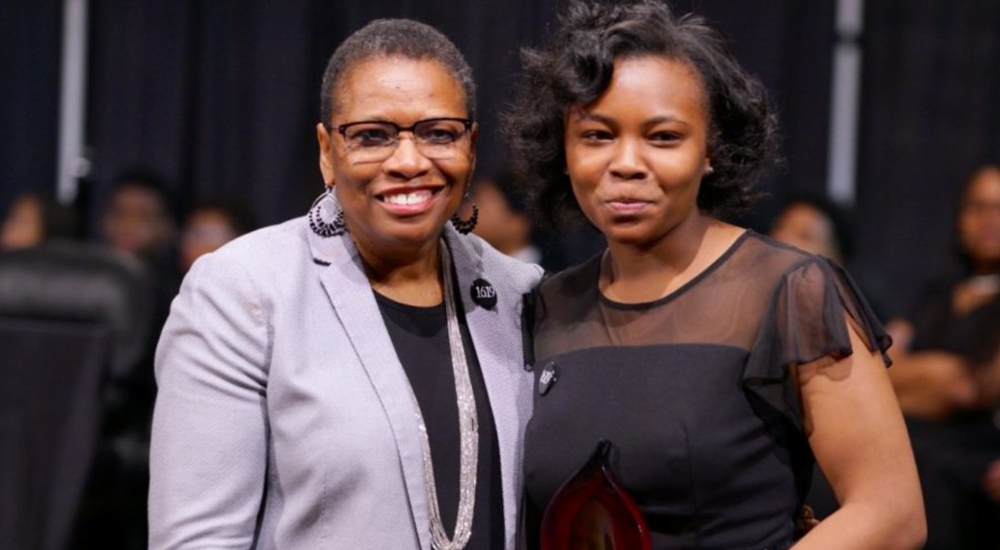
by Laura Faith Kebede, Chalkbeat | Nov 7, 2019 | Headline News |
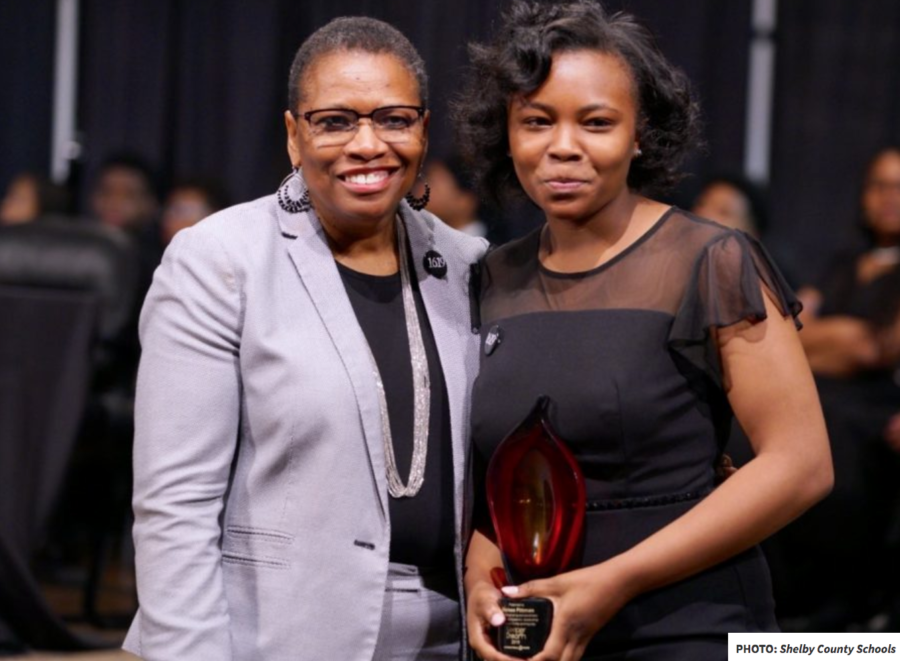
Marissa Pittman, right, is a 17-year-old senior at White Station High School who won the National Civil Rights Museum’s student Freedom Award for her work in educating young women of color about politics and running for office.
This article was originally published on Chalkbeat
Marissa Pittman wants to see more politicians at career fairs. As a high school senior in Memphis, she can’t remember a time when politics was discussed in a way that encouraged young people to get involved.
“They always talk about being a doctor or an engineer and that’s it,” said Pittman, 17, a student at White Station High School. “This is about shifting the narrative.”
She started an organization called Pumps and Politics 901 to encourage young women of color to run for office and get involved in every level of the political process.
Her work earned her the Keeper of the Dream Award from the National Civil Rights Museum this week. The museum’s highest honor for students comes with $500, a trophy, a one-year family museum membership and two tickets to anywhere Southwest Airlines flies in the continental United States.
Pittman wants to reach young women ages 15 to 24 but for now, mostly focuses on high school students. She helped lead a student walkout at her school last year, part of a nationwide movement to call for gun reform and reduce school shootings. The event turned into a community fair of sorts with nonprofit groups presenting advocacy issues relevant to students.
“I did that so students would have the opportunity to channel their anger somewhere else instead of keeping it inside,” Pittman told Chalkbeat. “It’s all about building connections and empowering the community and that’s what I tried to center the walkout on and have youth voice.”
Chalkbeat sat down with Pittman after the museum’s award ceremony and student forum. This interview has been edited for clarity and brevity.
What got you interested in politics?
Honestly, I can’t remember. But I’m going to attribute it to all the times I watched political shows and political stations like CNN and just listening to my parents talk with their friends about things going on in the community and their perspectives. I’m the oldest of three girls so I was nosy. I just hear about these things and I want to know.

PHOTO: Shelby County SchoolsMarissa Pittman
When you look at who is not represented equitably in politics, I realized the lack of diversity there. From there, I started looking at the city council website, the state legislature website and looking at local politicians from Memphis and I realized there was something wrong. There were few females of color in office.
What sparked the idea for Pumps and Politics?
I was really involved in Let’s Innovate Through Education (LITE), a student entrepreneurship program, my freshman year. They gave me some funding to try to solve a problem in my community. I started thinking about things that make me angry and the lack of political representation came up again.
I was at a student body meeting at White Station High School and I was the only female person of color. And White Station is supposed to be a microcosm of the city. If this was happening here, what’s happening everywhere else?
What kind of events do you do? What does the training look like?
The first event that I held was at City Hall and was sponsored by Councilwoman Patrice Robinson and my mentor state Rep. London Lamar was also present and now-state Sen. Katrina Robinson was present too. And we talked about the barriers and disparities that come up when people try to run for office.
From there it shifted to be more of a social media campaign because when people see politics and event it kind of scares them off. I realized that in order to make a difference you need to make it to where people can understand politics. So, now I’m working on a workbook for young women who want to run for office including information on mental health, advice about branding, making alliances, partnerships, and endorsements. Those are the “hidden rules” of getting into the political realm and changing the culture to where people think, “Oh, I could be a politician too.”
I look at national organizations and see what they’re doing and I’m trying to mimic that but also change it to where it’s impactful and not too time-consuming for people. I may still do events like an overnight training camp with the workbook and lectures from different female politicians too.
Were you learning any of this in school?
No. Well, not until 12th grade but I think that’s too late. I take AP Government and that’s really the only time you can take a government class. We’re being affected by government and policies as soon as we’re born. We talk about social studies in elementary and middle school but that’s not really in-depth. The most we hear about politics is during presidential election years for like 20 minutes. Any time anybody talked about politicians it was always negatively. You never hear about them doing great things like securing funding for a local project. I want students to know what the job of a politician entails. People always push engineers, but they don’t always push getting politically involved. I think that’s a big problem and could lead to lower voter turnout levels later on in life because people don’t really have the opportunity to learn.
“People always push engineers, but they don’t always push getting politically involved.”Marissa Pittman
What do you think schools should do to encourage students to make their voices heard?
Having discussions about political systems and integrating social studies into other subjects. Politics touches everything. Inviting politicians to career fairs, inviting nonprofit leaders and neighborhood organizers. Having those avenues available for students to explore. I think it’s about access, honestly.
Also creating space for students to express their political views is important — as long as they’re not hateful. At White Station, our principal does a very good job of that, but that’s not at every school. We have a political action club that just started.
Even at a “dress for success” event saying it’s not just for interviews but if you want to lead a political campaign, this is how you dress up or something like that. Little things add up and plant seeds in young people’s minds.

PHOTO: Shelby County SchoolsMarissa Pittman, far right, with other student winners (in front) and the National Civil Rights Museum’s honorees for Freedom Award (in back from left) Hafsat Abiola, Gloria Steinem, and John Legend.
Are there any education issues you’re rallying or organizing around?
Well, I don’t like vouchers. When we talk about Tennessee education, that’s something that always comes up because it’s going to be implemented in Memphis and Nashville. All the representatives in those two cities didn’t want it.
And the City of Memphis doesn’t give a dime to Shelby County Schools as far as public education and that angers me a lot. County commissioner Tami Sawyer’s mayoral campaign talked about that a lot and it wasn’t something I thought a lot about. That’s the great thing about having more women in the political process. They will bring things that you don’t really think about.
In state politics, voter suppression is something I’m really trying to figure out how I want to make an impact in next, especially going into college.
Will we see your name on a ballot soon?
Maybe! I don’t know. I think before I do the work, there’s so much that needs to be done to dismantle broken things in politics like voter suppression. I’m more focused on making the ballot box equal for people, especially non-violent felons who have been released. And just making elections more accessible to people. I don’t understand why there’s not early voting in every state.
A lot of people have been telling me that I need to run for school board (She can when she’s 18). I think we need a student representative on the school board and not just a token. The student congress doesn’t do as much as I would like them to see them do. They plan an event once a year, the Students Against Violence Everywhere (SAVE) conference, but there are more things that students should have a voice in.
I feel like in a lot of these systems, there’s an exclusion of the youth voice. They think we’re not old enough to have input. But we’re experiencing these things on a daily basis and we know what we’re talking about when it comes to things that teachers do and the quality of education in Shelby County Schools. I feel like we’re left out of that sometimes. They’ll come around with surveys for us to do, but are they really evaluating the surveys? Things like that.
I had a few girls texting me saying they were reading the Mueller report. Even if some girls don’t want to go into politics, I want them to be inspired. We may not be able to run for office right now, but we’ve got to get involved.







